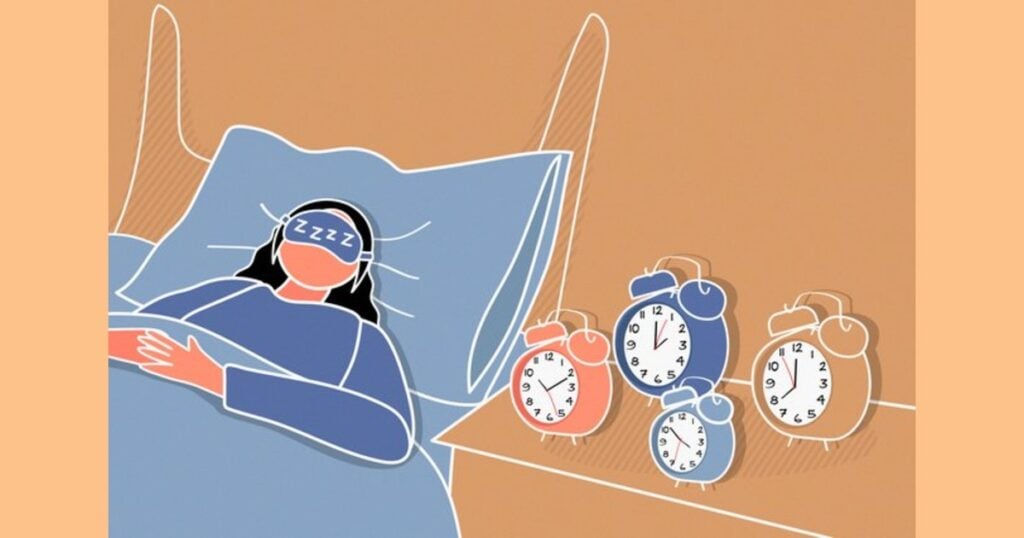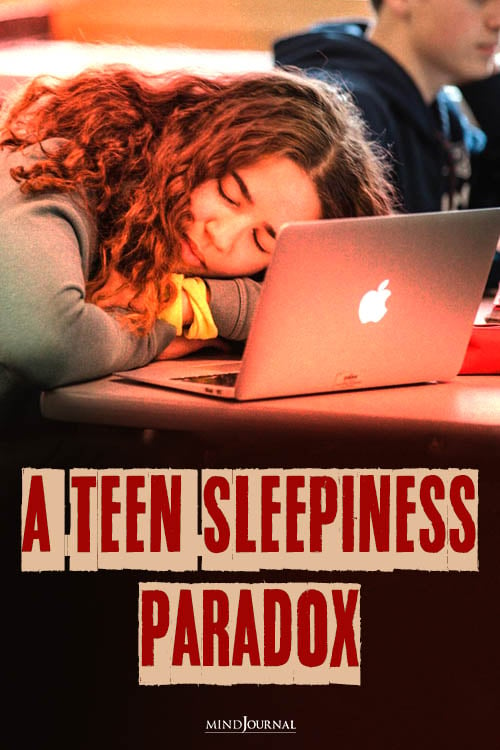Wondering why your teen seems tired or uninspired? Teen sleepiness might be affecting their focus, clarity, and creativity. Let’s explore about this condition.
New discoveries upend the conventional wisdom about adolescent sleep.
Key points
- Teen sleepiness has been described as a critical health problem.
- Many solutions and interventions to address the problem have been proposed and tried.
- Pruning of synaptic connections during adolescence may prevent them from fully benefiting from more sleep.
The Teen Sleepiness Paradox
It is generally assumed that if you are sleepy during the day, more nighttime sleep will make you less sleepy. I don’t think anyone, from sleep scientists to the general public, would disagree. At least, I didn’t think I would disagree until recently, when I read about some surprising discoveries about adolescent sleep.
Sleep researcher Mary Carskadon and colleagues have characterized biological changes coupled with psychosocial pressures as creating a “perfect storm” leading to an epidemic of sleepiness and associated negative consequences for post-pubertal adolescents.

Biological changes prevent them from being able to fall asleep early enough to get sufficient sleep, given early school start times. Further, social media use and the anxieties it often induces are frequently blamed for stealing crucially needed sleep time.
The serious consequences of sleep loss include lower school achievement; emotional, behavioral, and health problems; and a greater risk of accidents when driving begins. All of these have been well documented in the sleep research literature.
Read More Here: Can’t Get Out Of Bed? You Might Have Clinomania!
Many remedies have been proposed, including better education about the importance of getting enough sleep, closer parental monitoring and regulation of sleep, and convincing school districts to start school later. The evidence of effectiveness for these remedies has been growing, with mostly encouraging results. If teens and preteens get more sleep, multiple aspects of their lives will improve.
Despite all the encouraging research evidence, definitive proof of the long-lasting positive effects of these remedies is difficult to obtain. Randomized control studies such as those required for medical and pharmaceutical treatments are not possible for many sleep interventions, aside from those for sleep disorders such as sleep apnea and narcolepsy.
Measuring outcomes of sleep interventions aimed to improve adolescents’ sleep and well-being often rely on self-reports—asking study participants how much they are sleeping, how sleepy they are, and whether they are feeling more or less anxious and depressed.
Obtaining objective measures of these outcomes is more difficult and costly, so fewer studies have been done. Objective measures of other outcomes, such as school attendance, tardiness, grades, and standardized test scores, have shown some promising results.
A series of studies by sleep lab researcher Ian Campbell and colleagues at the University of California, Davis, has produced some surprising and counterintuitive results. The research designs are as rigorous as any I have seen for the study of sleepiness in adolescence. In one study, participants’ ages ranged from 9 to 20 years, and each person was studied annually for up to three years.
Younger children were assessed annually by pediatricians to determine Tanner stage—the method for determining pubertal maturation. Participants kept three different sleep schedules in their homes: 7, 8.5, and 10 hours in bed for four consecutive nights. During the second and fourth nights, EEG during sleep was monitored at home.
After the fourth night, they went to a lab where they were administered the multiple sleep latency test (MSLT), an objective measure of sleepiness, at four different times: 9:30 a.m.; 11:30 a.m.; 1:30 p.m.; and 3:30 p.m.
Results showed EEG changes (decline in Delta power) with increasing age during adolescence, likely related to the synaptic pruning of neurons that has long been found to occur during that developmental period. During early periods of growth, the brain makes more and more connections.
The pruning process that occurs during adolescence is said to make the brain more efficient while decreasing neuronal “white noise.” These structural changes, in turn, are proposed to be related to changes in gonadal hormones associated with puberty. In the study, sleepiness increased steeply until around age 14 and did not increase more into late adolescence and young adulthood.
The surprising finding—the paradox—was that there was a declining benefit of more sleep to decrease daytime sleepiness as participants got older. That is, older adolescents and young adults remained just as sleepy, even when they were getting more sleep.
The authors suggest that synaptic pruning decreases the brain’s waking activity and produces lower arousal, leading to more sleepiness.
Read More Here: The Scandinavian Sleep Method: The Nordic Way To Peaceful Sleep and Relationships
The implication is clear that even with the best attempts to reengineer the psychosocial environment for adolescents through better education about the need for sleep, instruction on how to attain it, education about the deleterious effects of social media and how to control it, starting school later, and any other methods, many teens may still be too sleepy to have optimal health and performance we all wish for them, even when they get what is thought to be an adequate amount of sleep.
Share your thoughts on adolescent sleep in the comments below!
References
Ian G Campbell, Jessica G Figueroa, Vincent B Bottom, Alejandro Cruz-Basilio, Zoey Y Zhang, Kevin J Grimm, Maturational trend of daytime sleep propensity in adolescents, Sleep, Volume 47, Issue 1, January 2024, zsad263, https://doi.org/10.1093/sleep/zsad263
Written by Joseph A. Buckhalt Ph.D.
Originally appeared on: Psychology Today










Leave a Reply